Are your efforts to find real estate leads getting tight? Are you looking for new ways to fill your pipeline?
Even seasoned pros get stuck sometimes, which forces them to go back to the drawing board and come up with new ideas. Things change quickly in real estate, so what worked yesterday might not work today.
My list of lead generation ideas is a living thing that is always being updated to reflect how the industry is changing.
I’m here to push the limits and question what people usually think. You have access to 20 methods, and they use AI.
When there is a lot of competition, the real estate market can be like a battlefield. This is especially true in 2023 and 2024. It’s not enough to just get leads; you also need to turn them into good prospects who are ready to act.
The article below goes into great detail about the strategies that have helped big names in the business and top agents become successful.
I’m giving you the tools you need to find and nurture leads successfully, from AI-powered solutions to new ways of marketing.
Come with me on this journey to change the way you get real estate leads. When you’re done, you’ll have a new view and a plan for consistently getting good leads. Allow me to begin!
20 Genius AI Real Estate Lead Generation Ideas
1. AI-Powered Property Matching Algorithms
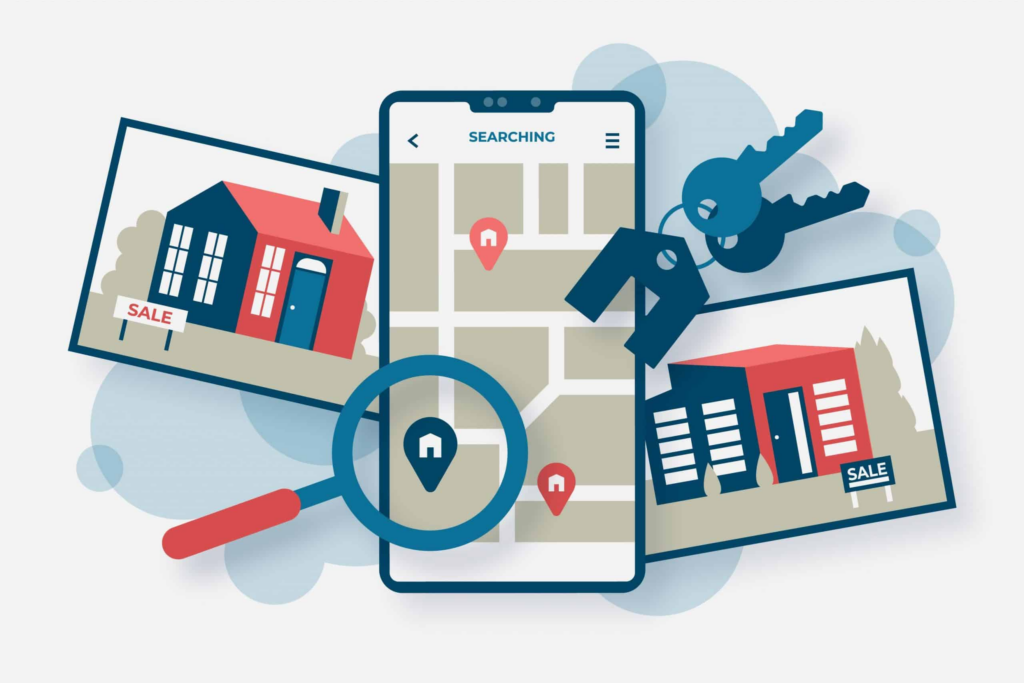
AI-Powered Property Matching Algorithms revolutionize the real estate industry by harnessing the power of artificial intelligence to streamline the property search process for potential buyers.
These algorithms analyze vast amounts of data, including buyers’ preferences, past behavior, and current market trends, to deliver personalized property recommendations.
Imagine a scenario where a young couple searching for their first home is instantly presented with a curated list of properties that align with their desired location, budget, and amenities.
By leveraging AI algorithms, real estate agents can provide a more efficient and tailored experience for their clients.
These algorithms go beyond basic search filters to consider nuanced factors such as lifestyle preferences, commute times, and even future property value projections.
For instance, a buyer interested in eco-friendly homes may receive recommendations for properties equipped with sustainable features like solar panels or energy-efficient appliances.
Moreover, AI-powered property matching algorithms continually learn and adapt based on user interactions and feedback.
As buyers interact with the platform, providing likes, dislikes, and feedback, the algorithms refine their recommendations to better match individual preferences.
This iterative process ensures that the recommendations become increasingly accurate and relevant over time.
One notable example of AI-powered property matching algorithms in action is Zillow’s “Zestimate” feature. Zestimate utilizes machine learning algorithms to estimate the market value of properties based on various factors, such as location, size, and recent sales data.
While not a direct property matching tool, Zestimate demonstrates the potential of AI in providing valuable insights to both buyers and sellers in the real estate market.
2. Virtual Reality Property Tours

Virtual Reality (VR) Property Tours represent a groundbreaking advancement in the real estate industry, merging cutting-edge VR technology with artificial intelligence to redefine the property viewing experience for potential buyers.
These immersive tours allow individuals to explore properties remotely as if they were physically present, enhancing convenience and accessibility.
Imagine being able to walk through a property, inspecting every detail from the comfort of your own home.
By implementing VR technology coupled with AI, real estate agents can offer an engaging and interactive experience that goes beyond traditional photos and videos.
AI algorithms enhance the VR tour by providing contextual information about the property, such as room dimensions, features, and nearby amenities.
This additional layer of intelligence enriches the viewing experience and helps buyers make more informed decisions.
One prominent example of VR Property Tours in action is Matterport, a platform that specializes in creating immersive 3D virtual tours of properties.
Using Matterport’s technology, potential buyers can navigate through a property in a virtual environment, interacting with objects and getting a realistic sense of the space.
This level of immersion can significantly reduce the need for physical property viewings, saving time and resources for both agents and buyers.
Furthermore, VR Property Tours offer unparalleled flexibility and accessibility, particularly in situations where in-person viewings may be challenging or impractical.
Buyers from different geographical locations or those with mobility limitations can explore properties at their own pace, without the constraints of time or distance.
This democratization of property viewing opens up new opportunities for lead generation and expands the reach of real estate agents.
3. Predictive Lead Scoring
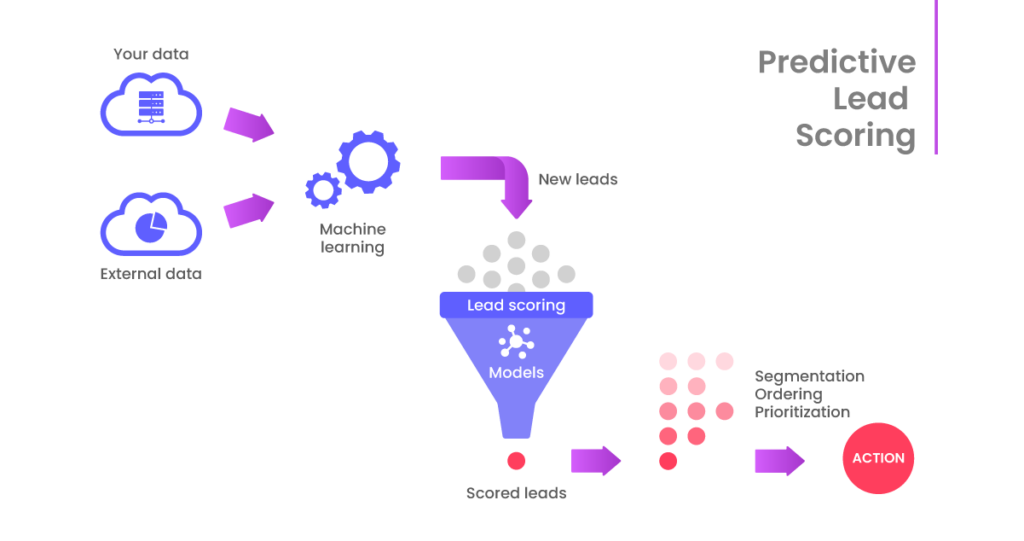
Predictive Lead Scoring is a game-changing technique in the realm of real estate lead generation, harnessing the power of predictive analytics to evaluate leads and prioritize them based on their likelihood to convert.
By analyzing various data points such as behavior patterns, demographics, and engagement metrics, predictive lead scoring enables agents to focus their efforts on leads with the highest potential.
Imagine having a system that automatically identifies the most promising leads, allowing you to allocate your resources more effectively.
This approach goes beyond traditional lead scoring methods by leveraging advanced algorithms and machine learning techniques to identify patterns and trends in lead behavior.
By examining historical data and identifying common characteristics among high-converting leads, predictive lead scoring can accurately predict which leads are most likely to result in successful transactions.
This predictive capability empowers agents to tailor their marketing and sales strategies to suit the needs and preferences of their target audience.
One notable example of predictive lead scoring in action is Salesforce’s Einstein Lead Scoring feature.
Using machine learning algorithms, Einstein Lead Scoring analyzes lead data and assigns a predictive score based on factors such as lead source, lead activity, and past conversions.
This score helps sales teams prioritize leads and focus their efforts on those with the highest potential for conversion, resulting in more efficient lead management and higher conversion rates.
Furthermore, predictive lead scoring allows agents to identify leads at various stages of the buying journey and tailor their interactions accordingly.
For instance, leads deemed to be “warm” or “hot” may receive more personalized follow-up messages or targeted marketing campaigns, while leads in the early stages of the buying process may be nurtured with educational content or informative resources.
This segmentation ensures that leads receive the right level of attention and engagement, ultimately increasing the likelihood of conversion.
4. Automated Email Campaigns with Personalization

Automated Email Campaigns with Personalization represent a powerful tool in the arsenal of real estate lead generation, leveraging AI technology to streamline communication while delivering tailored content to recipients.
By automating email campaigns, agents can reach out to leads at scale, ensuring consistent engagement without the need for manual intervention.
Imagine being able to nurture leads effortlessly, providing them with relevant information and updates tailored to their interests.
AI comes into play by adding a layer of personalization to these automated email campaigns.
Through advanced algorithms, AI can analyze recipient data, such as past interactions, preferences, and behaviors, to customize email content and recommendations.
This personal touch makes recipients feel valued and understood, increasing the likelihood of engagement and conversion.
One exemplary platform that offers automated email campaigns with personalization features is Mailchimp.

Mailchimp’s AI-powered tools enable users to create dynamic email campaigns that adapt to each recipient’s preferences, delivering content tailored to their interests and behaviors.
This level of personalization enhances the user experience and fosters stronger connections between agents and leads.
Moreover, automated email campaigns with personalization allow agents to nurture leads through the sales funnel more effectively.
By sending targeted content and offers based on where leads are in the buying journey, agents can guide them towards conversion while building trust and rapport.
For instance, leads showing interest in a particular neighborhood may receive emails highlighting properties in that area, along with relevant market insights and resources.
5. AI-Powered Chatbots for Instant Assistance

AI-Powered Chatbots for Instant Assistance are transforming the way real estate agents engage with potential leads, offering round-the-clock support and information through automated chat interfaces.
Integrating AI chatbots on websites and social media platforms allows agents to provide instant responses to inquiries, address common questions, and capture leads even outside of regular business hours.
Imagine having a virtual assistant available 24/7 to assist potential buyers and sellers with their queries.
These chatbots leverage AI technology to understand and respond to natural language inquiries, providing a seamless and personalized user experience.
Through machine learning algorithms, chatbots can learn from interactions with users, continuously improving their ability to provide accurate and relevant responses.
This adaptive capability ensures that users receive prompt and helpful assistance, increasing satisfaction and engagement.
One notable example of AI-powered chatbots in real estate is Keller Williams’ Kelle platform.
Kelle utilizes AI technology to assist agents with various tasks, including answering client questions, scheduling appointments, and providing market insights.
By integrating Kelle’s chatbot feature into their websites and social media platforms, agents can enhance their responsiveness and efficiency in handling client inquiries.
Moreover, AI-powered chatbots play a crucial role in lead capture and qualification.
By engaging visitors in real-time conversations, chatbots can gather information about their preferences, budget, and timeline, helping agents identify and prioritize high-potential leads.
For instance, a chatbot may qualify leads by asking qualifying questions and directing them to relevant listings or resources based on their responses.
6. Social Media Listening for Lead Generation

Social Media Listening for Lead Generation is a strategic approach that harnesses the power of AI tools to monitor conversations across social media platforms, identify potential leads, and engage with prospects effectively.
By leveraging AI technology, real estate agents can gain valuable insights into the preferences, interests, and behaviors of their target audience.
Imagine having the ability to tap into the vast pool of social media conversations to identify individuals who are actively looking for real estate opportunities.
AI tools for social media listening analyze large volumes of social media data in real-time, enabling agents to stay informed about relevant discussions and trends in the market.
These tools use advanced algorithms to identify keywords, hashtags, and phrases related to real estate, allowing agents to pinpoint potential leads and engage with them proactively.
This proactive approach helps agents stay ahead of the competition and establish meaningful connections with prospects.
One example of AI-powered social media listening in action is Sprout Social, a platform that offers robust social media monitoring and analytics features.
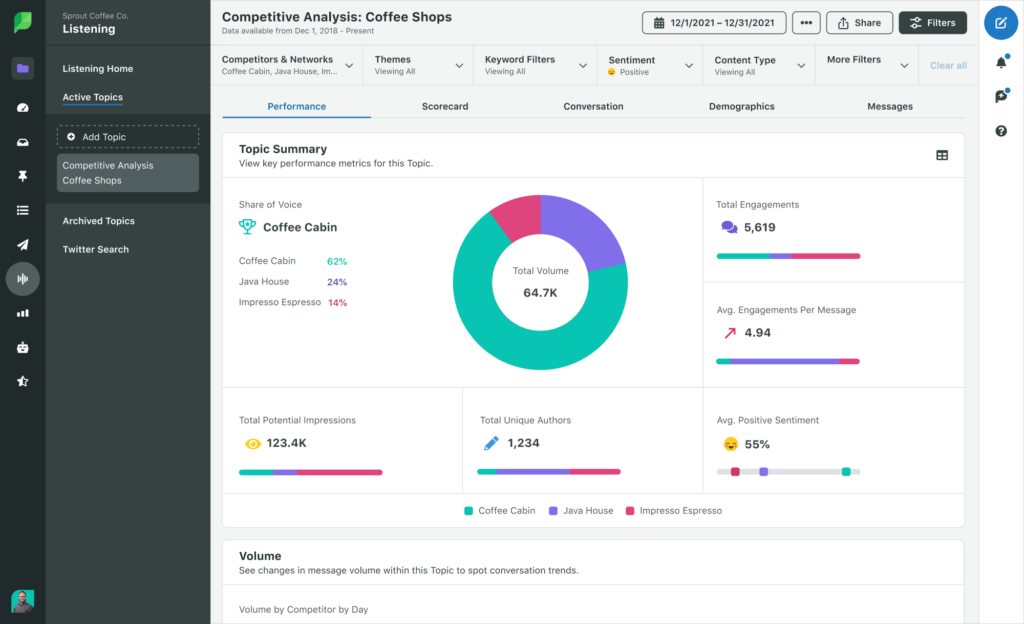
With Sprout Social, agents can track conversations, monitor brand mentions, and identify relevant opportunities for engagement across various social media channels.
By staying tuned in to social media conversations, agents can identify leads in need of assistance or guidance and offer their expertise to provide value.
Moreover, social media listening allows agents to tailor their marketing and communication strategies to resonate with their target audience.
By understanding the sentiments, preferences, and pain points of their audience, agents can craft personalized messages and content that are more likely to resonate and drive engagement.
This personalized approach helps agents build trust and credibility with their audience, ultimately leading to higher conversion rates.
7. Natural Language Processing (NLP) for Lead Qualification

Natural Language Processing (NLP) for Lead Qualification is a groundbreaking application of AI technology in the real estate industry, enabling agents to analyze text data from inquiries and conversations with unprecedented speed and accuracy.
By leveraging NLP algorithms, agents can extract valuable insights from written communication, such as emails, chat transcripts, and social media messages.
Imagine being able to sift through mountains of text data in seconds, identifying key indicators of lead quality and readiness.
NLP algorithms are trained to understand the nuances of human language, allowing them to recognize patterns, sentiment, and intent within text data.
These algorithms can categorize leads based on various criteria, such as urgency, budget, and specific requirements, helping agents prioritize their follow-up and engagement efforts.
This automated lead qualification process saves agents valuable time and ensures that they focus their attention on leads with the highest potential for conversion.
One notable example of NLP for lead qualification in action is HubSpot’s Conversational Intelligence tool.
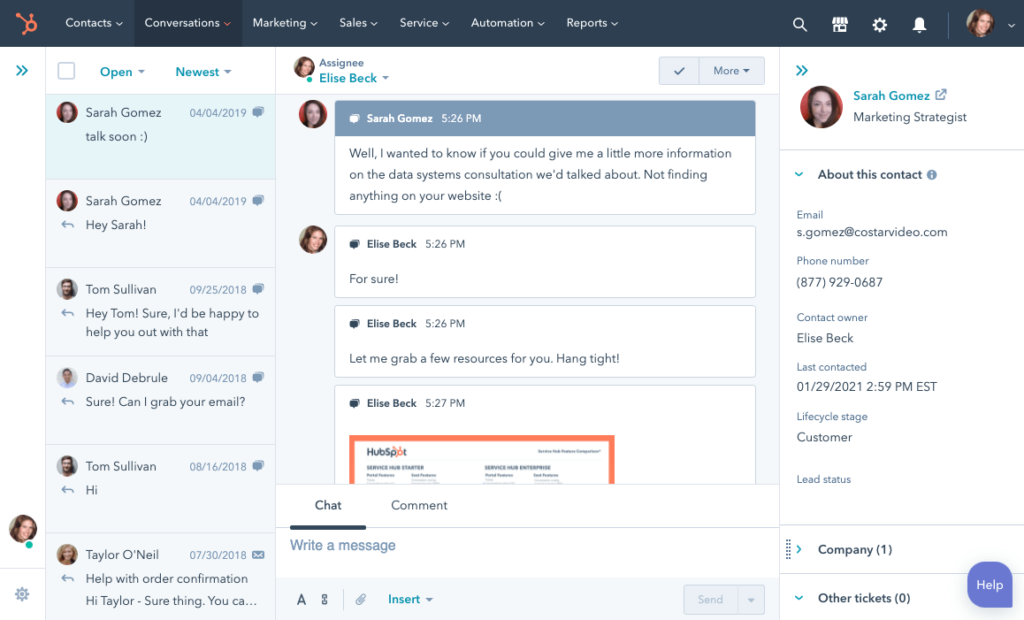
HubSpot’s tool uses NLP algorithms to analyze email and chat transcripts, automatically identifying key phrases, questions, and signals that indicate a lead’s level of interest and intent.
By providing agents with actionable insights from their conversations, HubSpot’s tool helps streamline the lead qualification process and improve overall sales efficiency.
Moreover, NLP for lead qualification enables agents to personalize their communication and tailor their approach to individual leads.
By understanding the specific needs and preferences expressed in written communication, agents can craft more relevant and targeted responses, increasing the likelihood of engagement and conversion.
This personalized approach helps agents build rapport with leads and foster stronger relationships throughout the sales process.
8. Dynamic Pricing Models with AI

Dynamic Pricing Models with AI revolutionize the real estate industry by harnessing the power of artificial intelligence to optimize pricing strategies for sellers.
These AI-driven models analyze a myriad of factors including market trends, competitor pricing, and property attributes to determine the optimal listing price for a property.
Imagine having a pricing strategy that adapts in real-time to changes in the market, ensuring maximum returns for sellers.
AI-driven dynamic pricing models go beyond traditional pricing methods by incorporating machine learning algorithms that continuously learn and adapt based on incoming data.
By analyzing historical sales data, demand fluctuations, and macroeconomic factors, these models can forecast future market conditions and adjust pricing strategies accordingly.
This predictive capability enables sellers to stay ahead of the curve and capitalize on emerging opportunities in the market.
One notable example of dynamic pricing models with AI is Redfin’s Automated Valuation Model (AVM).
Redfin’s AVM uses AI algorithms to analyze property data, market trends, and comparable sales to generate accurate and timely property valuations.
By leveraging AI technology, Redfin enables sellers to price their properties competitively and attract more qualified buyers, ultimately leading to faster sales and higher returns.
Moreover, dynamic pricing models with AI empower sellers to optimize their pricing strategies for different market segments and buyer demographics.
By segmenting the market and tailoring pricing strategies to specific buyer profiles, sellers can maximize the appeal of their properties and attract a wider range of potential buyers.
This targeted approach increases the likelihood of selling properties quickly and at favorable prices.
9. AI-Powered Predictive Maintenance

AI-Powered Predictive Maintenance emerges as a game-changing solution in the realm of real estate investment, utilizing AI technology to anticipate maintenance needs and optimize property management practices.
By leveraging AI algorithms to analyze property data, real estate investors can proactively identify potential maintenance issues before they escalate, minimizing downtime and reducing repair costs.
Imagine being able to predict when a property’s HVAC system or plumbing is likely to fail, allowing for timely intervention and prevention of costly repairs.
Predictive maintenance involves the continuous monitoring and analysis of various property metrics, such as equipment performance, energy usage, and environmental conditions.
AI algorithms analyze historical data and patterns to identify trends and anomalies, enabling investors to predict when maintenance tasks will be required and schedule them proactively.
This proactive approach helps investors maintain property value and ensure tenant satisfaction.
One notable example of AI-powered predictive maintenance in real estate is the use of smart building management systems.
These systems leverage sensors and IoT devices to collect real-time data on property performance and condition, which is then analyzed using AI algorithms to predict maintenance needs and optimize building operations.
By implementing predictive maintenance strategies, property owners can reduce operational costs, extend equipment lifespan, and enhance overall property value.
Moreover, AI-powered predictive maintenance enables real estate investors to prioritize maintenance tasks based on their impact on property value and tenant satisfaction.
By focusing resources on critical maintenance needs and preventative measures, investors can optimize their maintenance budgets and allocate resources more effectively.
This targeted approach ensures that maintenance efforts are aligned with strategic goals and contribute to long-term property performance.
10. AI-Enhanced Property Inspections

AI-Enhanced Property Inspections represent a significant advancement in the real estate industry, leveraging AI technology to streamline the inspection process and provide more detailed insights to potential buyers.
By utilizing AI algorithms, agents can conduct property inspections more efficiently, accurately identify issues, and estimate repair costs with greater precision.
Imagine being able to offer potential buyers detailed reports on a property’s condition in a fraction of the time it takes for traditional inspections.
AI-enhanced property inspections involve the use of various technologies, such as drones, cameras, and sensors, to collect data on property conditions.
AI algorithms analyze this data to detect potential issues, such as structural defects, water damage, or mold growth, that may not be immediately visible to the naked eye.
This level of insight enables agents to provide buyers with a comprehensive understanding of a property’s condition and potential renovation needs.
One notable example of AI-enhanced property inspections is the use of drone technology to conduct aerial inspections of properties.
Drones equipped with high-resolution cameras and sensors can capture detailed images and data from hard-to-reach areas, such as roofs and facades, allowing agents to assess structural integrity and identify potential issues.
By incorporating AI algorithms, agents can analyze this data more efficiently and provide buyers with actionable insights.
Moreover, AI-enhanced property inspections enable agents to provide buyers with more accurate estimates of repair costs and renovation expenses.
By leveraging AI algorithms to analyze data from past repair projects and market trends, agents can provide buyers with realistic cost projections and budget estimates.
This transparency helps buyers make informed decisions and reduces the risk of unexpected expenses during the property purchase process.
11. Personalized Property Recommendations

Personalized Property Recommendations powered by AI offer a transformative solution in the real estate industry, delivering tailored property suggestions to potential buyers based on their unique preferences, budget constraints, and lifestyle requirements.
By harnessing AI algorithms, agents can analyze vast amounts of data, including buyer behavior, past interactions, and market trends, to generate personalized recommendations that resonate with individual buyers.
Imagine receiving a curated list of properties perfectly suited to your needs and preferences, without having to sift through countless listings.
These AI-powered recommendation engines leverage machine learning algorithms to continuously learn and adapt based on user feedback and interactions.
By understanding buyers’ preferences and behavior patterns, these algorithms can refine their recommendations over time, ensuring that buyers receive increasingly relevant and personalized suggestions.
This iterative process enhances the user experience and increases the likelihood of finding the perfect property match.
One notable example of personalized property recommendations is the use of AI-powered real estate platforms like Zillow or Realtor.com.
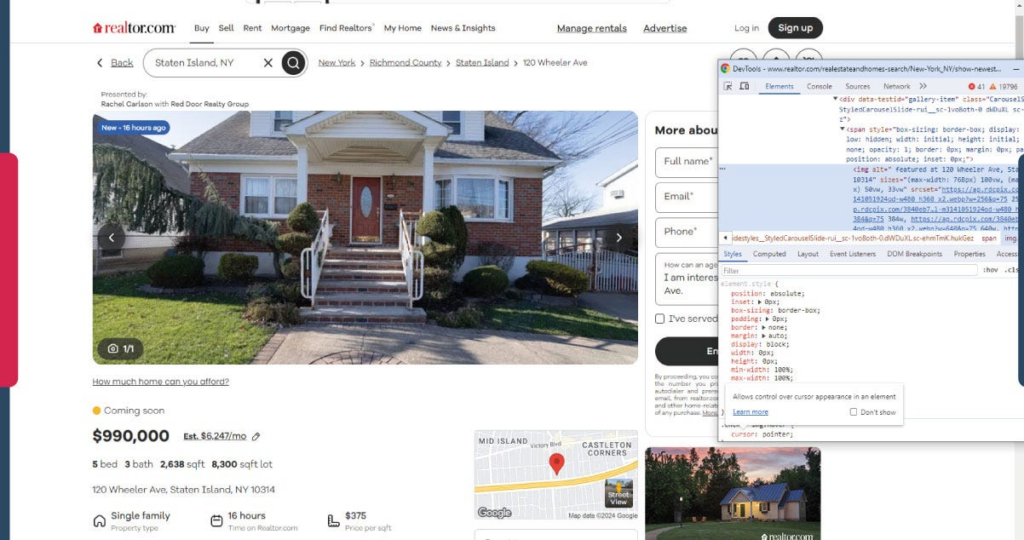
These platforms use algorithms to analyze user data, such as search history, saved properties, and engagement metrics, to generate personalized recommendations for properties that match buyers’ criteria.
By providing buyers with tailored suggestions, these platforms help streamline the property search process and improve user satisfaction.
Moreover, personalized property recommendations enable agents to foster deeper connections with potential buyers by demonstrating a thorough understanding of their needs and preferences.
By delivering relevant and targeted property suggestions, agents can build trust and credibility with buyers, positioning themselves as trusted advisors in the real estate transaction process.
This personalized approach helps agents stand out in a crowded market and increases the likelihood of converting leads into satisfied clients.
12. Image Recognition for Property Search

Integrating Image Recognition for Property Search represents a cutting-edge innovation in the real estate industry, allowing users to find properties by uploading images or specifying visual preferences.
By incorporating image recognition technology into property search platforms, users can search for properties based on visual attributes such as architectural style, interior design, or specific features.
Imagine being able to find your dream home simply by uploading a photo of a similar property you admire.
Image recognition technology works by analyzing visual data from images uploaded by users and matching them with relevant properties in the database.
Using advanced algorithms, the technology can identify key features and characteristics depicted in the images, allowing for accurate and relevant property recommendations.
This enhances the user experience by providing a more intuitive and visually-driven approach to property search.
One notable example of image recognition for property search is the use of platforms like Pinterest and Houzz, which allow users to search for properties and interior design ideas based on images.
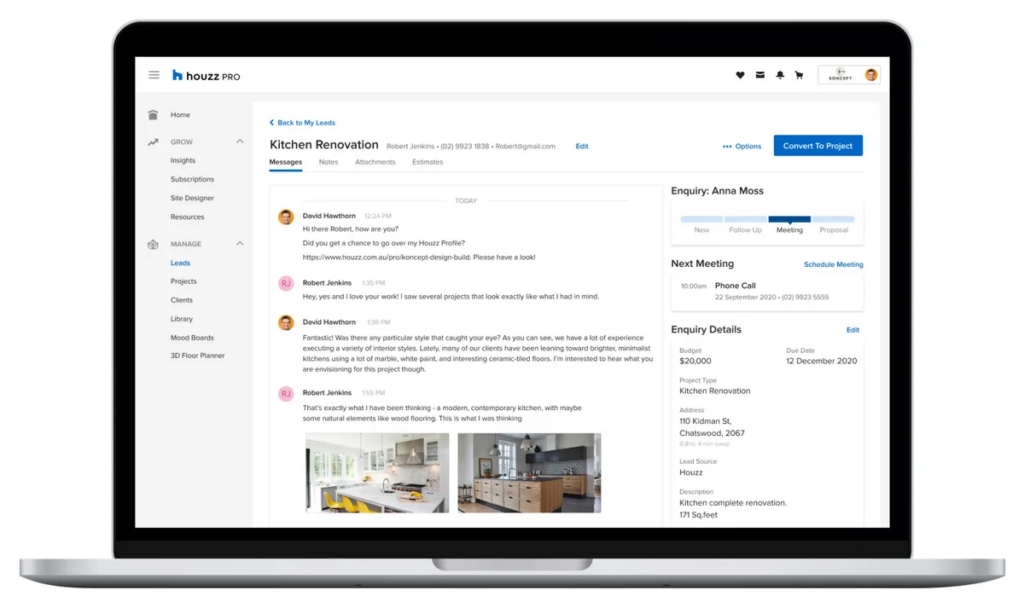
These platforms use image recognition algorithms to analyze photos uploaded by users and suggest visually similar properties or design inspirations.
By leveraging image recognition technology, these platforms provide users with a more personalized and visually engaging experience.
Moreover, image recognition for property search enables users to discover properties that may not be adequately described by text-based search queries.
By allowing users to search for properties based on visual preferences, agents can attract a broader audience and increase the chances of matching buyers with their ideal properties.
This visual-centric approach caters to the preferences of modern consumers who value visual aesthetics and design.
13. Blockchain for Secure Transactions

Blockchain for Secure Transactions presents a groundbreaking solution in the real estate industry, leveraging blockchain technology powered by AI to ensure secure and transparent transactions for all parties involved.
By utilizing blockchain, real estate transactions can be recorded and verified in a decentralized and immutable ledger, eliminating the risk of fraud, manipulation, and unauthorized alterations.
Imagine conducting real estate transactions with complete confidence, knowing that every step of the process is secure and transparent.
Blockchain technology operates on a decentralized network of computers, known as nodes, that collectively validate and record transactions.
Each transaction is encrypted and linked to previous transactions, forming a chain of blocks that cannot be altered or tampered with.
This level of security and transparency ensures that all parties involved in a real estate transaction can trust the integrity of the process.
One notable example of blockchain for secure transactions in real estate is the use of platforms like Propy.
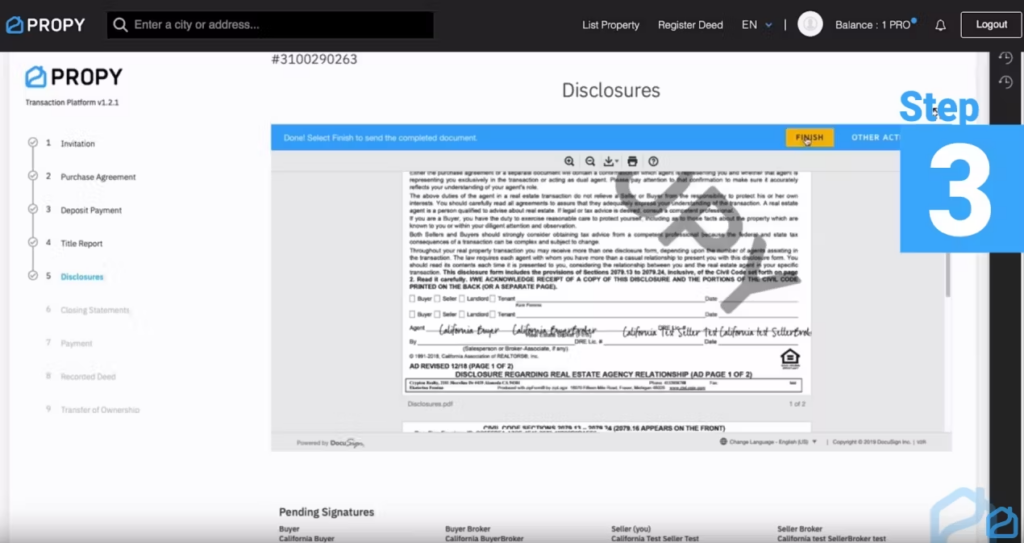
Propy utilizes blockchain technology to facilitate real estate transactions, allowing buyers, sellers, and agents to conduct transactions securely and transparently.
By leveraging blockchain, Propy ensures that property ownership records are accurate and tamper-proof, reducing the risk of disputes and fraud.
Moreover, blockchain for secure transactions enhances trust among buyers, sellers, and agents by providing a transparent and auditable record of all transaction activities.
Buyers can verify property ownership and title history, while sellers can ensure that their property is transferred to the rightful owner without any discrepancies.
This transparency builds confidence in the real estate market and encourages more transactions to take place.
14. AI-Driven Market Analysis Reports

AI-Driven Market Analysis Reports offer a powerful tool for real estate agents and investors to gain insights into local market trends, property values, and investment opportunities.
By harnessing AI technology, these reports provide comprehensive and data-driven analyses that help agents and investors make informed decisions.
Imagine having access to detailed market reports that highlight emerging trends and lucrative investment opportunities in your target area.
AI-driven market analysis reports leverage machine learning algorithms to analyze vast amounts of real estate data, including sales transactions, property listings, and demographic information.
These algorithms can identify patterns, correlations, and trends in the data, providing valuable insights into market dynamics and property values.
This data-driven approach ensures that agents and investors have access to accurate and up-to-date information to guide their decision-making process.
One notable example of AI-driven market analysis reports is the use of platforms like Mashvisor.

Mashvisor uses AI algorithms to analyze real estate data and generate investment property reports that include key metrics such as rental income potential, cash flow projections, and property appreciation rates.
By leveraging AI technology, Mashvisor provides agents and investors with actionable insights that help them identify lucrative investment opportunities in any market.
Moreover, AI-driven market analysis reports enable agents to differentiate themselves in a competitive market by providing value-added services to their clients.
By offering comprehensive market reports that highlight investment opportunities and market trends, agents can attract potential buyers and investors and position themselves as trusted advisors.
This proactive approach helps agents build credibility and trust with clients, ultimately leading to more business opportunities.
15. Voice Search Optimization for Real Estate Websites

Voice Search Optimization for Real Estate Websites is an innovative approach that utilizes AI techniques to ensure better visibility and accessibility to potential buyers who use voice-enabled devices for their property search.
By optimizing real estate websites for voice search, agents can tap into the growing trend of voice search usage and reach a wider audience of prospective buyers.
Imagine being able to connect with potential buyers who prefer to search for properties using voice commands on their smartphones or smart speakers.
Voice search optimization involves optimizing website content, including property listings, descriptions, and FAQs, to match the natural language queries used in voice search.
AI techniques, such as natural language processing (NLP) and machine learning, help real estate websites understand and interpret voice search queries more accurately.
This ensures that websites can provide relevant and helpful responses to users’ voice search queries.
One notable example of voice search optimization for real estate websites is the use of conversational AI chatbots.
These chatbots use NLP algorithms to understand and respond to voice commands from users, providing them with information about available properties, scheduling viewings, and answering their questions.
By integrating chatbots with real estate websites, agents can offer personalized assistance to users who prefer to interact with voice commands.
Moreover, voice search optimization enhances the user experience by making it easier and more convenient for potential buyers to find relevant property information.
By optimizing real estate websites for voice search, agents can ensure that their listings are more easily discoverable by users who prefer voice-enabled devices.
This increases the visibility of properties and enhances the chances of attracting qualified leads.
16. AI-Powered Home Staging Solutions

AI-Powered Home Staging Solutions represent a revolutionary approach to showcasing properties, leveraging AI technology to enhance the visual appeal and marketability of homes for potential buyers.
By offering AI-powered virtual home staging services, real estate agents can transform vacant or outdated properties into attractive and inviting spaces that resonate with buyers.
Imagine being able to showcase a property’s full potential without the need for physical staging furniture or renovations.
AI-powered home staging solutions utilize advanced algorithms to digitally stage and furnish properties, creating photorealistic images of how the space could look with different furniture styles and layouts.
These solutions can remove clutter, add furniture, and even change wall colors to showcase a property in its best light.
This allows potential buyers to visualize themselves living in the space and better understand its potential.
One notable example of AI-powered home staging solutions is the use of platforms like BoxBrownie.

BoxBrownie offers virtual staging services powered by AI technology, allowing real estate agents to digitally stage properties with high-quality images that look indistinguishable from physical staging.
By leveraging AI technology, BoxBrownie enables agents to showcase properties in their best light and attract more qualified buyers.
Moreover, AI-powered home staging solutions offer a cost-effective and flexible alternative to traditional physical staging.
By eliminating the need for physical furniture and renovations, agents can save time and money while still achieving stunning results.
This makes home staging accessible to a wider range of properties and budgets, increasing the marketability of listings and attracting more potential buyers.
17. Sentiment Analysis for Buyer Insights
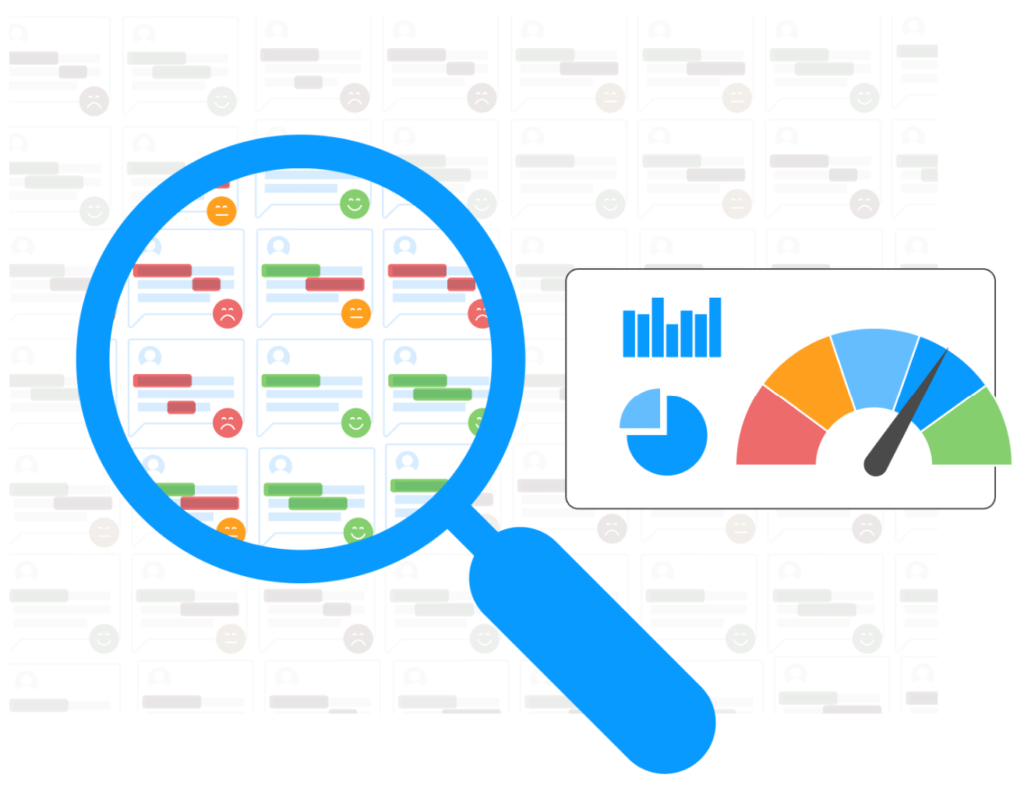
Sentiment Analysis for Buyer Insights offers real estate agents a valuable tool for understanding buyer sentiments and preferences expressed on social media and other platforms.
By employing sentiment analysis tools, agents can gain valuable insights into the opinions, attitudes, and emotions of potential buyers, guiding their marketing strategies and lead generation efforts.
Imagine being able to tailor your marketing messages and offerings to better resonate with the desires and preferences of your target audience.
Sentiment analysis involves the use of natural language processing (NLP) and machine learning algorithms to analyze text data from social media posts, online reviews, and other sources.
These algorithms can identify and categorize sentiments expressed in text, such as positive, negative, or neutral, and extract key themes and topics.
This allows agents to gain a deeper understanding of buyer preferences and sentiments related to real estate.
One notable example of sentiment analysis for buyer insights is the use of social media monitoring tools like Brandwatch or Hootsuite.

These tools use sentiment analysis algorithms to track mentions of keywords related to real estate on social media platforms, allowing agents to monitor conversations, identify trends, and gauge public opinion.
By analyzing social media data, agents can uncover valuable insights that inform their marketing strategies and lead generation efforts.
Moreover, sentiment analysis for buyer insights enables agents to personalize their marketing messages and offerings to better resonate with their target audience.
By understanding the sentiments and preferences of potential buyers, agents can tailor their marketing campaigns to address their needs, concerns, and desires.
This personalized approach increases the effectiveness of marketing efforts and enhances the likelihood of attracting qualified leads.
18. AI-Driven Smart Advertising Campaigns
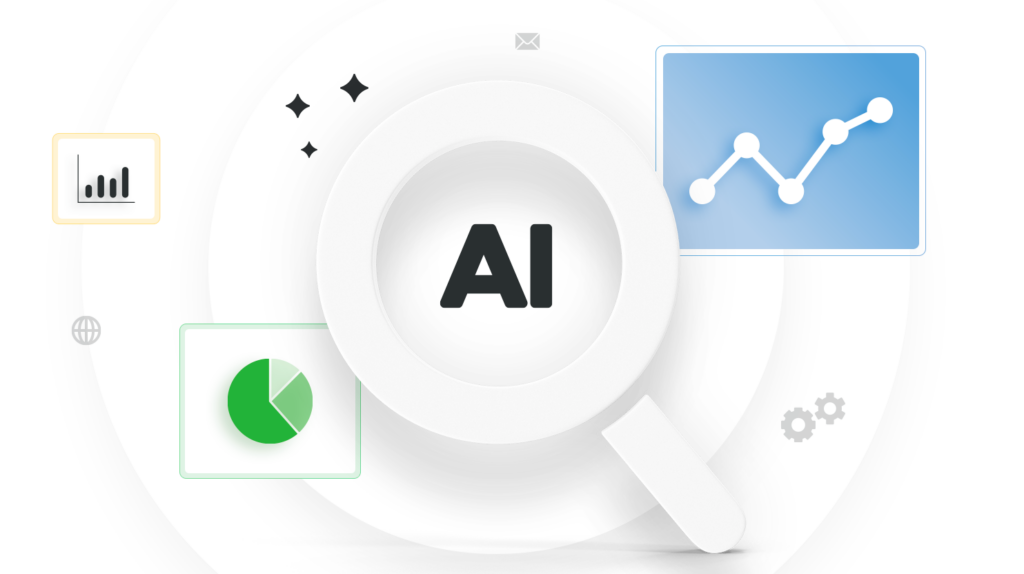
AI-Driven Smart Advertising Campaigns represent a sophisticated approach to lead generation in the real estate industry, harnessing the power of AI algorithms to optimize advertising efforts across various channels.
By leveraging AI technology, real estate agents can create targeted advertising campaigns that reach specific demographics and behaviors, maximizing the efficiency of their lead generation efforts.
Imagine being able to reach potential buyers with tailored advertisements that resonate with their interests and preferences.
These AI-driven advertising campaigns utilize machine learning algorithms to analyze vast amounts of data, including demographic information, online behaviors, and engagement metrics.
By understanding patterns and trends in the data, these algorithms can identify the most relevant audiences and tailor advertising messages to appeal to their interests and needs.
This ensures that advertising dollars are spent efficiently, targeting audiences most likely to convert into qualified leads.
One notable example of AI-driven smart advertising campaigns is the use of platforms like Facebook Ads or Google Ads.
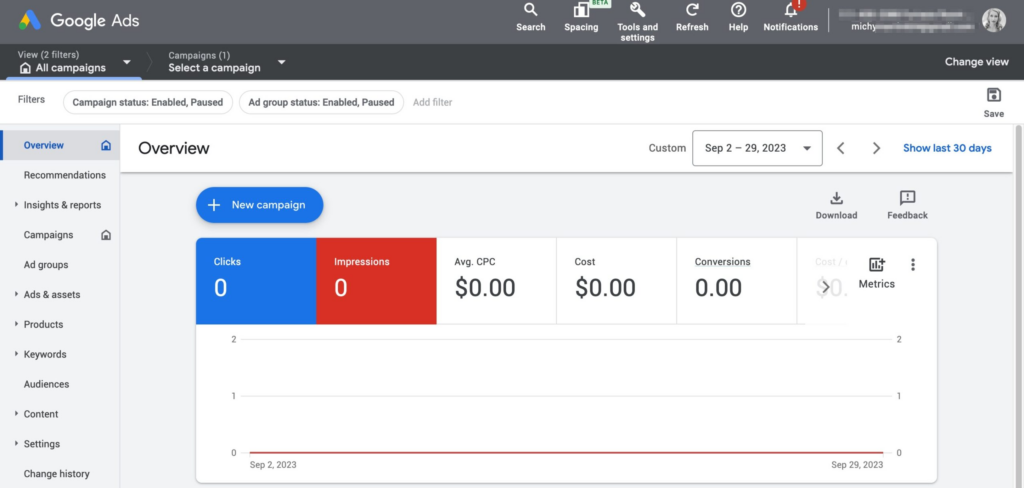
These platforms leverage AI algorithms to optimize ad targeting and delivery, allowing advertisers to reach specific demographics, interests, and behaviors with their ads.
By analyzing user data, these platforms can automatically adjust ad placements and bidding strategies to maximize the effectiveness of advertising campaigns.
Moreover, AI-driven smart advertising campaigns enable real estate agents to achieve better ROI on their advertising spend by focusing on high-value audiences and optimizing campaign performance in real-time.
By continuously analyzing data and refining targeting strategies, agents can ensure that their advertising efforts are delivering results and attracting qualified leads.
This proactive approach to advertising allows agents to stay ahead of the competition and drive higher conversion rates.
19. Automated Follow-Up Systems
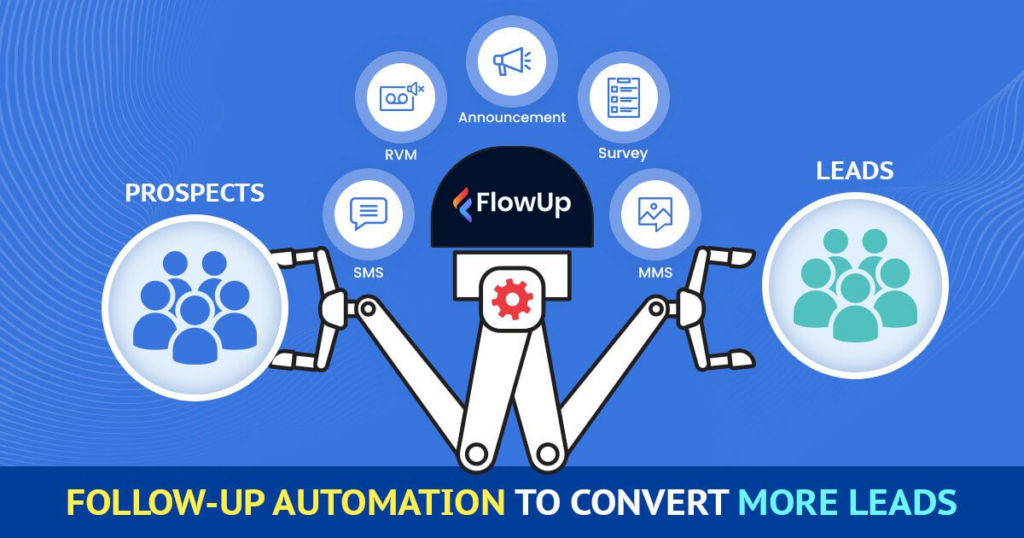
Automated Follow-Up Systems powered by AI offer real estate agents a strategic approach to nurturing leads over time and maintaining engagement with potential buyers.
By implementing AI-driven automated follow-up systems, agents can streamline their lead nurturing process and ensure that no opportunity falls through the cracks.
Imagine being able to stay top-of-mind with prospects by sending personalized messages, reminders, and relevant content automatically.
These automated follow-up systems leverage AI technology to analyze lead behavior, preferences, and engagement patterns.
By understanding how leads interact with content and respond to communications, these systems can deliver personalized follow-up messages that resonate with each individual prospect.
This personalization enhances the effectiveness of lead nurturing efforts and increases the likelihood of converting prospects into clients.
One notable example of AI-driven automated follow-up systems is the use of customer relationship management (CRM) platforms like Salesforce or HubSpot.

These platforms use AI algorithms to track lead interactions, segment leads based on their behavior and preferences, and automatically send personalized follow-up messages.
By automating the follow-up process, agents can focus their time and energy on high-value activities, such as closing deals and building relationships.
Moreover, AI-driven automated follow-up systems enable agents to maintain consistent communication with leads over time, even as their client base grows.
By scheduling follow-up messages and reminders in advance, agents can ensure that leads receive timely and relevant communications at every stage of the buyer’s journey.
This helps to nurture relationships, build trust, and ultimately increase the likelihood of conversion.
20. AI-Powered Property Valuation Tools
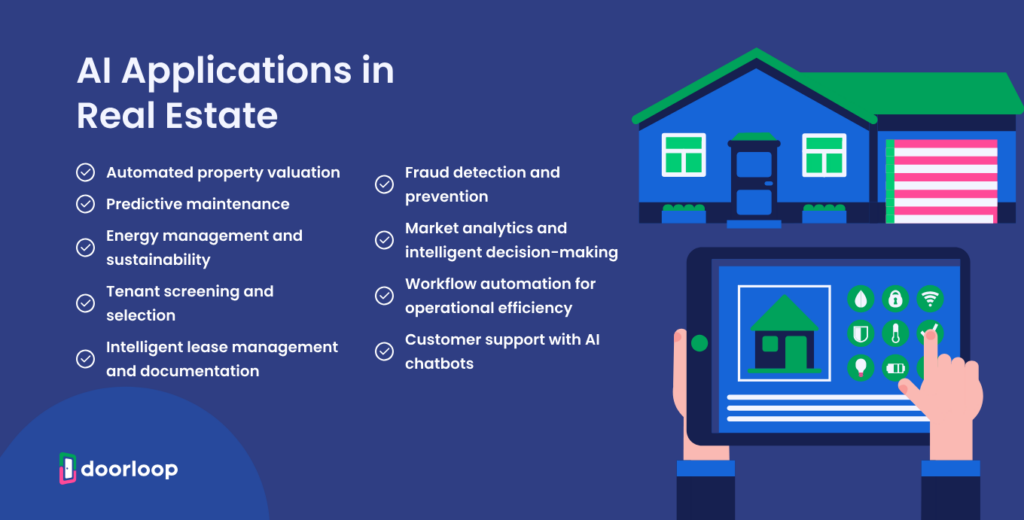
AI-Powered Property Valuation Tools represent a significant advancement in the real estate industry, offering sellers valuable insights into the value of their properties.
These tools leverage AI algorithms to analyze historical data, market trends, and property attributes, providing accurate estimates of property values.
Imagine having access to a sophisticated tool that can accurately assess the worth of your property based on a variety of factors.
By utilizing AI technology, these property valuation tools can process vast amounts of data quickly and efficiently.
They take into account factors such as recent sales in the area, property size, condition, and amenities to generate precise valuations.
This level of accuracy ensures that sellers have a realistic understanding of their property’s worth, empowering them to make informed decisions.
One prominent example of AI-powered property valuation tools is the Zillow Zestimate.

Zillow’s proprietary algorithm analyzes various data points, including recent sales, property characteristics, and market trends, to estimate property values.
Sellers can input their property details into the Zestimate tool and receive an instant valuation, providing them with valuable insights into their property’s market worth.
Moreover, AI-powered property valuation tools offer sellers a level of convenience and accessibility that traditional methods cannot match.
By providing instant valuations online, these tools eliminate the need for lengthy appraisal processes and enable sellers to get an accurate estimate of their property’s value within seconds.
This expedites the selling process and allows sellers to make informed decisions more quickly.
Final Thoughts
As I come to the end of our discussion on AI Real Estate Lead Generation Ideas, I’m struck by how useful these new ideas could be.
Every idea, from using AI to figure out how much a house is worth to using dynamic price models, shows us what the future of real estate might be like.
Because I’m an expert in this area, I’ve seen directly how AI technologies have changed things. These concepts aren’t just ideas; they’re real solutions that could change the way we meet with buyers and sellers.
In the fast-paced world of real estate, using AI isn’t just a way to keep up; it’s also a way to set the pace.
Utilising AI’s strengths, we can open up fresh chances, make stronger connections, and achieve unmatched lead creation success.
To sum up, let’s jump into these AI Real Estate Lead Generation Ideas with both feet firmly on the ground. Let’s open up new ways to succeed and change the rules of what’s possible in real estate.


